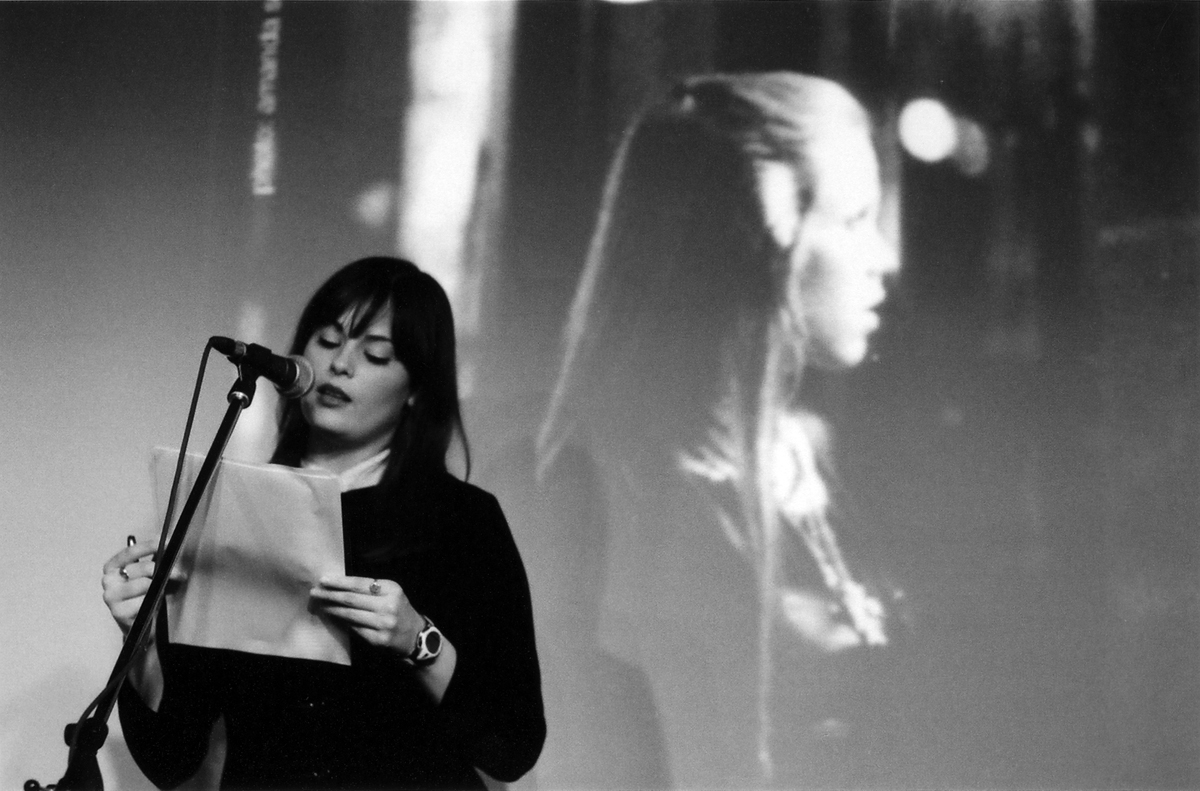Every regular at the Pontiac Quarterly knows there’s a special moment when the night nearly flies off the rails. Literary events always have the potential to get ugly, but most maintain a pleasant facade in an effort to disguise the tedium, anxiety, and loathing—self or otherwise—that can permeate such evenings. Formerly a monthly, and now a quarterly event at the Drake Hotel’s Underground room, Pontiac not only flirts with chaos, it makes it part of the program. That element of risk has defined the series since it was first mounted, in March of 2004. And a little danger can add so much to the evening, provided some Antonin Artaud wannabe doesn’t leap off the stage and smack you with a chain.
Pontiac Quarterly was founded by its host, Damian Rogers, as a “live-action literary and arts journal,” one Rogers hoped would avoid the shortcomings typically associated with literary readings—namely boredom, discomfort, and a sense of intimidation. “Of course, I really have no idea what it’s like for people who stumble into Pontiac for the first time,” says Rogers, a poet who lived in Detroit and Chicago before moving to Toronto in 2002 and becoming the arts editor of Eye Weekly. “What I wanted to do was create a night that was both smart and fun, a sweet and geeky social where people didn’t feel weird about not knowing everyone else in the room.”

Rogers at the debut of Pontiac Quarterly.
Every “issue” of Pontiac Quarterly includes three Bingo Mikes, in which audience members submit their names in the hope of being called up onstage. Some recite hastily scrawled bits inspired by the evening’s theme (e.g., sedation, conversion, thirteen); others get off the stage even faster. Then there are those who’ve come prepared with pieces so long and painful, they suck the night into a dark chasm of unfun. There’s nothing like the mix of desperation and curiosity you feel when trying to gauge the thickness of a reader’s pages from fifty feet away and praying the text isn’t single spaced. If Pontiac Quarterly really is a live-action journal, the Bingo Mike—as well as the sometimes unpredictable contributions by the poets, prose stylists, playwrights, commentators, musicians, dancers and other artists who’ve taken the stage by design rather than chance—is the magazine’s colouring contest.
Rogers’ hope is to create something more like “a house party than a pretentious art-wank happening.” Though the randomness factor certainly enhances that vibe, Rogers has displayed remarkable acumen as a programmer, with each evening offering a diverse lineup of readers and performers. Some writers present published work, while others bring theme-specific stories, commentaries, or confessions (the ever-industrious Brian Joseph Davis popped pills to create a “Zyban diary” for the sedation issue). Live illustration and DVD projections of everything from Little Darlings to Apocalypse Now cover the walls. After the magazine’s “classifieds” are read (there are never very many), the evening closes with a brief musical set by the likes of Gentleman Reg or the Hilozoists.
Rogers is more than willing to let each evening sort itself out. “The best thing that I did in the evolution of P.Q. was letting go of the idea of controlling everything,” she says, “though I still clutch that clipboard like it has the power to impart order. I used to have full-blown panic attacks, but I’ve learned to enjoy it. So far, pretty much everything that could go wrong has—missing readers, all manner of technical difficulty, stolen drink tickets. And I am still breathing by the end of each night.”